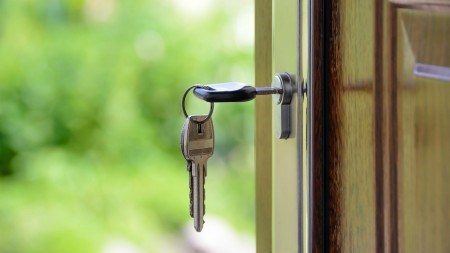The current financial crisis in which we find ourselves presents a unique opportunity for Millennials and first-time buyers who might now be able to find their dream home at an affordable price.
As an additional incentive, at just 7.75%, the prime lending rate is at the lowest level since 1973. This makes it easier for first-time buyers to afford the repayments on their home finance.
Although it might be impossible for some to think about entering the market at this stage, for others it could be a matter of having the discipline to make certain sacrifices and set aside money so that they can take advantage of the current market conditions.
According to Adrian Goslett, Regional Director and CEO of RE/MAX of Southern Africa, for the majority of first-time buyers, the biggest hurdle to overcome is getting together the money for the deposit. He suggests that the best way to accomplish big goals is by starting small and remaining consistent.
“While the thought of saving an amount as large as R100,000 (*for illustrative purposes, we’re assuming a 10% deposit on a R1 million home) may seem like a massive task, it can be achieved by breaking the amount down into smaller, more manageable goals. The key is to get started and remain consistent, putting money away every month,” he recommends.
How much should you save?
To work out how much first-time buyers need to save, Goslett suggests that the best way to set a monthly savings goal is to find the difference between your current rental payment and the estimated bond repayment. “The amount should include other monthly costs such as bond insurance, homeowner insurance, rates and levies. If possible, the difference should be set aside as savings. The benefits of this strategy are twofold. Firstly, it will build up your savings, and secondly, it will help you to adjust to the anticipated cost of owning a property,” he explains.
Using this method of savings will also provide first-time buyers with some insight into whether they are financially ready to own a property and what they can truly afford. According to Goslett, if a first-time buyer can meet the savings goal consistently, then they know they are in a position to purchase a property within their budget. If they are struggling to meet the monthly savings goals, they might need to adjust their housing budget and bring it in line with what they can realistically afford.
Cutting costs
The problem within the current market is finding the money to set aside each month. The first place Goslett suggests first-time buyers look at is the property they are renting. “If the rental is more than 30% of your monthly income, then it is too much. While it might mean scaling back, consider moving to a more affordable rental property. It doesn’t make sense to spend more money on a rental home if it is holding you back from owning property. Finding more savings will require scrutinizing every expense. There are numerous ways to cut back on spending – it just takes some creativity,” he explains.
Don't rush
As much as the market conditions are incredibly favourable for first-time buyers at the moment, Goslett cautions buyers not to rush into a decision they cannot afford just to enter the market before housing prices correct themselves. “While there is merit to the concern, it is best not to rush into buying property until you are completely ready. Even if it means paying a slightly higher price, it is best to have a solid financial foundation and be confident that you can make the commitment that homeownership requires. If you are ready to purchase, speak to one of our property advisors, or start searching for homes through our website today,” he concludes.




